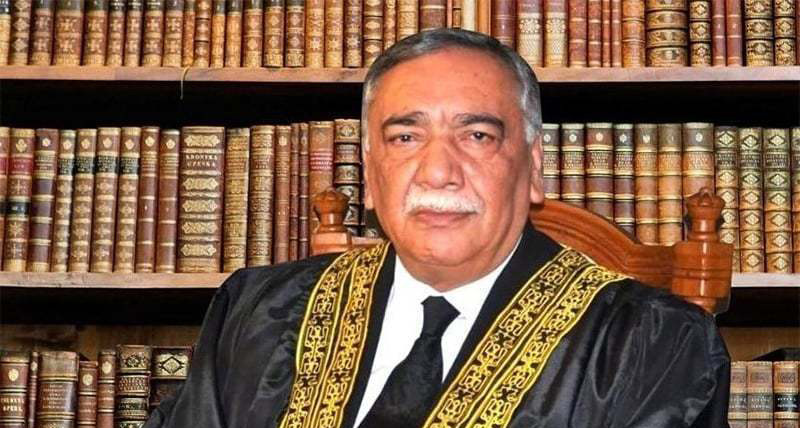
“Acid attack offenders do not deserve any clemency,” Chief Justice of Pakistan (CJP) Asif Saeed Khosa declared while hearing an application filed by convict Javed Iqbal, who approached the apex court with an appeal against the sentence he was awarded for throwing acid on a woman.
The lawyer for the petitioner informed the SC bench that the female victim of the acid attack had “forgiven” his client.
But Justice Khosa said that there could be no compromise in a case concerning an acid attack.
“The affected woman may forgive [the convict], but the law cannot forgive an acid attack suspect,” the top judge added.
He clarified that the law regarding acid attacks was “extremely strict”, saying: “Burning someone with acid is a bigger crime than murder.”
Justice Khosa said the petitioner had committed “extreme cruelty” by attacking the woman with acid.
CJP says acid attack offenders do not deserve any clemency
He said the punishment for throwing acid was life imprisonment and that it was a “crime against the state”.
“It is possible that the affected woman was threatened into going to the Supreme Court to give a statement [of forgiving the convict],” the chief justice observed.
“The law cannot forgive anyone who burns someone’s face with acid,” he concluded, rejecting the convict’s plea for acquittal.
Separately, Justice Khosa clarified that the superior court could not interfere in the matters of the high court, however, the court would think of interference in the lower courts in case of extreme injustice.
A three-member bench of the SC heard a petition of Waris Masih. The petitioner’s counsel insisted the superior court to order the high court to extend the time for the payment of the amount for guarantee.
On the petitioner’s counsel arguments, the CJ remarked the SC in its 70-year history never interfered in the matter of the high court while the SC could consider interference in the matters of the lower courts over happening of the extreme injustice.
The CJ said that the case is under trial in the HC and the SC can not order in the under-trial case adding that the HC has extended period for the payment thrice despite that the payment was not made.
Later, the SC disposed of Waris Masih petition against the decision of the HC for the recovery of Rs 1.5 million and ordered the petitioner to pay the sum.













